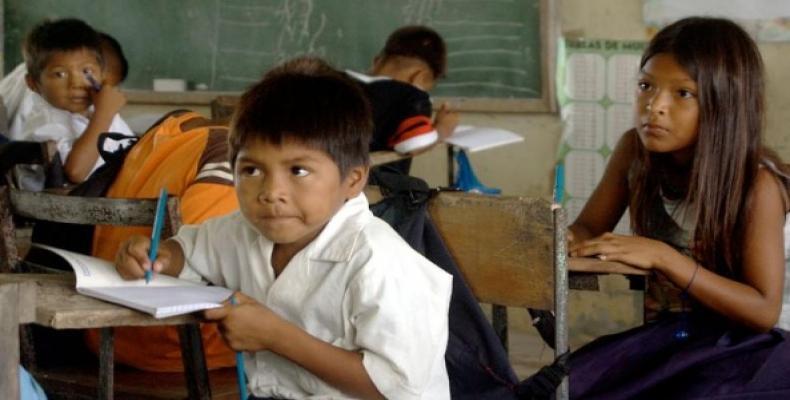Panama City, May 19 (PL-RHC)-- Indigenous communities in Panama reaffirmed their movement to reclaim their right to inter-cultural education on Monday, pledging to ensure children in the first three grades of primary school in indigenous regions are taught by their own indigenous educators.
“We are not opposed to Latinos teaching our children,” said indigenous Ngabe-Bugle attorney Alberto Montezuma. “What we have always claimed is that at these levels, including preschool, teachers must be indigenous so that our children have a bilingual education.”
The Panamanian government promised inter-cultural education for its indigenous administrative zones in 2010, but the model was never implemented, according to Panama’s La Estrella, despite the World Bank assigning $4.5 million to the Ministry of Education for the project.
Numbers of indigenous teachers top out at 10 percent of all educators in the heart of indigenous territories, with the much lower numbers on indigenous regions.
Panama's Ministry of Education launched a census of indigenous educators this year with the goal of eventually providing further training to promote bilingual inter-cultural education, but infrastructural shortcomings also pose challenges. Panamanian Minister of Education Marcela Paredes told Prensa Latina that providing inter-cultural education is an ongoing challenge for the government, as providing adequate classroom space to fulfill educational needs.
Indigenous peoples in Panama, over half of whom are Ngabe-Bugle, make up almost 5 percent of the country's total population. “What we want is that our children do not lose their native culture,” said Montezuma.


